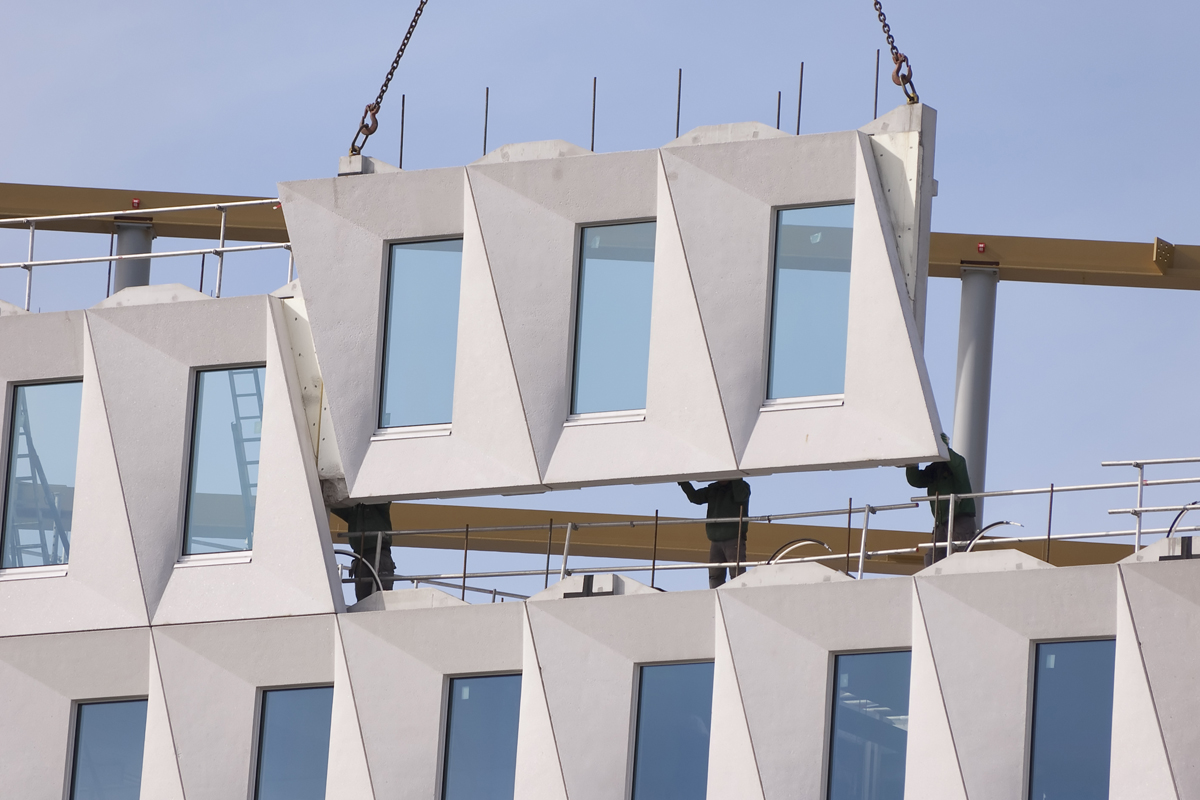New opportunities in Modular Construction
6 June 2017

Patrick Parsons has partnered with Modular Space Solutions (MSS), a modular housing supplier that imports modular building products from exclusive suppliers in Europe and Asia to the UK.
In recent years, modular construction has gained significant attention as a modern and efficient approach to building structures. Modular construction involves the manufacturing and assembly of building components or modules in a controlled factory environment. These modules are constructed using the same materials and meet the same building codes and regulations as traditional on-site construction. However, the key difference lies in the way these modules are produced and transported to the construction site.
As modular construction gains traction, its future looks promising. The approach has already found applications in residential, commercial, and institutional projects. Advancements in technology, such as Building Information Modelling (BIM) and automation, further enhance the efficiency and precision of modular construction processes.
Modular construction has numerous benefits and has emerged as a popular choice for various projects and can be applied to commercial buildings, apartments, and even retail outlets such as McDonalds.
Modular construction offers a viable solution for addressing housing shortages and emergency housing needs. The ability to rapidly deploy modular units in disaster-stricken areas or rapidly growing cities demonstrates its potential for social impact.
What are the benefits of Modular Construction?
Speed and Efficiency:
One of the most significant advantages of modular construction is its accelerated timeline. Constructing building components simultaneously in a factory while on-site preparations occur drastically reduces construction time.
Modular construction allows for simultaneous assembly, resulting in projects being completed up to 50% faster than traditional construction methods. This time-saving benefit allows for earlier occupancy, faster return on investment, and reduced disruption to nearby communities.
Cost-Effectiveness:
Modular construction offers cost advantages in several ways. Firstly, the controlled factory environment ensures efficient use of materials, minimising waste.
Secondly, the ability to work on multiple modules simultaneously reduces labour costs and onsite staffing requirements. Moreover, shorter construction periods can reduce financing costs and improve cash flow. These combined factors contribute to overall cost savings, making modular construction an attractive option for budget-conscious projects.
Quality and Consistency:
Modular construction takes advantage of factory-controlled conditions, allowing for precise construction techniques and consistent quality throughout the building process. As the modules are constructed in a controlled environment, they are not subject to adverse weather conditions that can affect on-site construction.
The use of standardised designs and materials also ensures consistency and accuracy, reducing the likelihood of errors and rework. The result is a higher-quality end product that meets or exceeds industry standards.
Sustainability:
Modular construction aligns well with sustainable building practices. The controlled factory environment reduces waste generation by optimizing material usage and recycling excess materials. Additionally, the precise construction process enables better energy efficiency, as modules can be designed to incorporate insulation and other energy-saving features.
Since modular buildings are designed for transport and reassembly, they can be disassembled and relocated, promoting resource conservation and minimising the environmental impact.
These advantages have positioned it as an attractive alternative to traditional construction methods in many scenarios. However, it is important to acknowledge the potential limitations, such as design constraints, transportation challenges, limited on-site changes, and the reliance on the factory environment.
Evaluating project-specific requirements and engaging experienced professionals can help determine whether modular construction is the right choice for a particular project. Find out how our engineering team can support your modular project.

